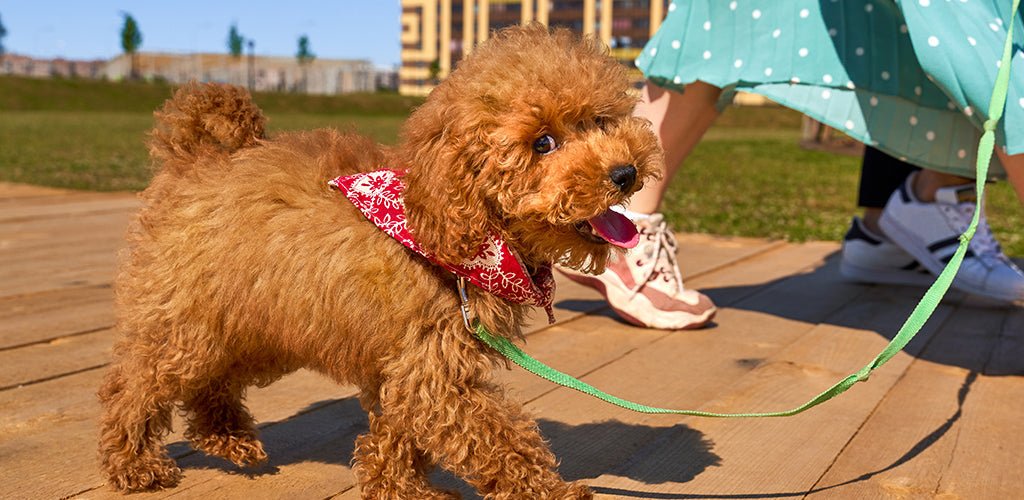In 24 cities

Socialisation skills your puppy needs to have - Why, What, When?
|
|
Time to read 2 min
Get product availability and delivery timelines based on your location.
Are you sure you want to delete this address?
Help us ensure a smooth delivery
Help us ensure a smooth delivery
SIZE GUIDE
|
|
Time to read 2 min
When your puppy is a tiny baby, they open their eyes and start learning about the world around them. Every time they have a neutral or positive experience with something new they encounter (scent, sight, touch, smell, etc.), they file it away in their mental library as "Ok, this is a thing." This is how puppies benchmark what "normal life" is. Starting from 12 weeks of age, puppies rapidly stop adding to this special library of memories, and by 14 weeks it's mostly shut. Instead, when they encounter something new, they will begin to CHECK against their memories to see if they have encountered something similar previously. If they haven't, puppies will assume the new thing/experience is scary by default which is known as neophobia.
Socialization is taking advantage of the early 12+ week window to give your puppy as many broad neutral experiences as possible, to fill their mental library and not leave any gaps. This will drastically reduce the chance of your puppy developing fear or reactivity as a teenager or adult, which can be very difficult and lengthy to fix through active counter conditioning.
It can also help your dog/puppy to deal with various scenarios like:
Again, socialization experiences must be NEUTRAL or POSITIVE. This means not carrying or pushing or pulling your puppy towards the new, potentially scary thing. Instead, allowing them to calmly observe the new thing/situation on their own terms and make their own decision whether they'd like to investigate further. Support your puppy with relaxed praise and treats for having the interaction/observation at whatever distance they are fully comfortable at.
Do not set up habits that you won't want in the future (e.g. if you don't want your puppy pulling you to meet and play with every dog in the street for the rest of its life, make sure that during socialization you spend at least 60% of the time just observing other dogs passing by and rewarding your puppy for being relaxed and staying with you. If you don't want them chasing birds, ensure that their very first encounters with birds are managed so that a chasing game can't start, with leashes or barriers as appropriate).
But what about their vaccination schedule?
Medical issues can be easily prevented by organizing playdates with vaccinated dogs at safe locations instead of taking your young puppy to dog parks or pet stores. On the other hand, missing out on the critical socialization window generally predisposes your dog to potentially developing some reactivity and hence increased possible behavior problems. The most up to date veterinary advice these days is to prioritize socialization and NOT shut puppies inside until all shots are done.
Still got queries about the socialization process? Our behavior experts can help! Book a consultation with us to get personalized help.
Grooming
The six most important points of grooming a puppy are:
Share this blog
Read More Articles


2 item in cart
₹10,360